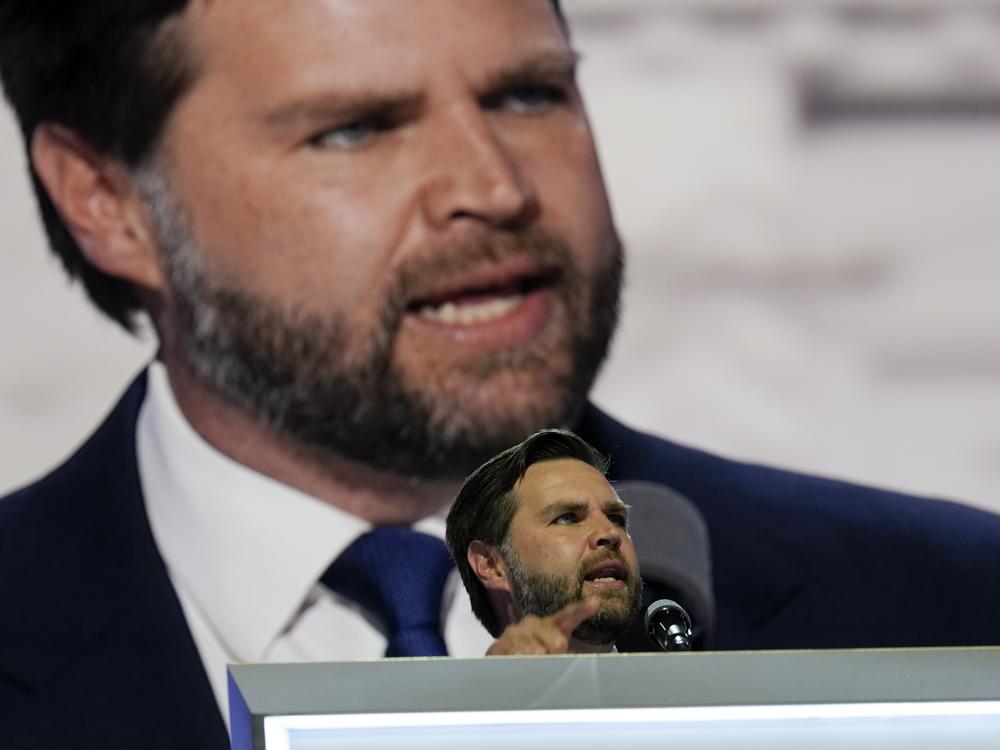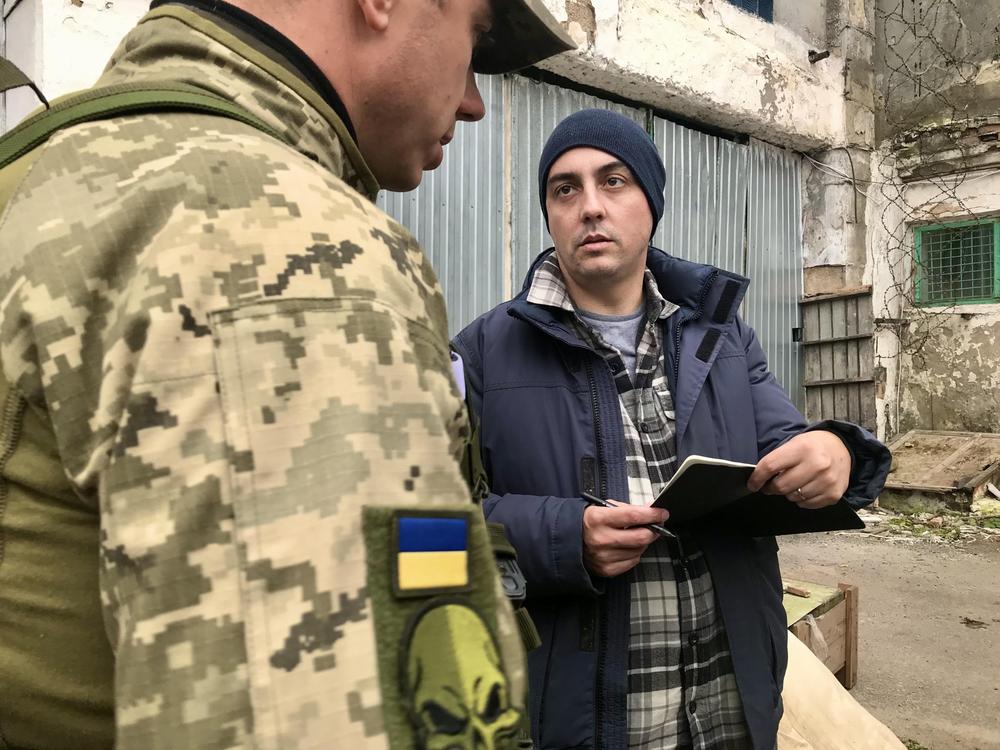Section Branding
Header Content
JD Vance and the Republican vets who think America should do less, not more, abroad
Primary Content
For more on the 2024 race head to the NPR Network's live updates page.
Republican vice presidential nominee JD Vance served in the U.S. Marine Corps, and he’s the first veteran of Iraq or Afghanistan to appear on a presidential ballot.
But Vance isn’t a hawk; in fact, he now leads a contingent of war veterans in the Republican Party who oppose U.S. military intervention abroad.
“I served my country honorably and I saw when I went to Iraq that I had been lied to,” Vance said on the Senate floor in April after the chamber passed $61 billion of new aid for Ukraine.
He essentially accused his colleagues of getting fooled, just like he was when he believed in the Iraq War.
“My excuse is that I was a high school senior. What is the excuse of many people who were in this chamber or in the House of Representatives at the time and are now singing the exact same song when it comes to Ukraine? Have we learned nothing?” he said.
“Realism and restraint”
In Congress, military service can be a key credential for talking about U.S. foreign policy, especially war. For decades, Republican veterans were more likely to hold a hard line in favor of interventions in Afghanistan, Iraq and against Russia’s invasion of Ukraine. Rep. Dan Crenshaw of Texas, for example, a former Navy SEAL with visible wounds from his deployments, frequently defends what’s considered the establishment view on Ukraine.
“It’s not really about Ukraine, it’s about Russia,” he said last year, while encouraging his colleagues to support military aid to avoid the chaos of a world without American global leadership. “The only way that world comes back is if America pulls back.”
But Vance, who served in Iraq with Marine Corps public affairs, took a different lesson from his deployment — that America shouldn’t be fighting wars for lofty ideals like promoting democracy abroad.
“People will not fight for abstractions, but they will fight for their home. And if this movement of ours is going to succeed, and if this country is going to thrive, our leaders have to remember that America is a nation, and its citizens deserve leaders who put its interests first,” he said, as he accepted the GOP nomination for vice president.
Vance has said in the past that the U.S. lacks the military industrial base to defend Ukraine against Russia, and that countering the rise of China should be the priority. The Vance nomination swings the Trump ticket toward Republicans who call their approach “realism and restraint.”
“The battle for the future of American foreign policy, particularly within the Republican Party, is definitely on,” says William Ruger, president of the American Institute for Economic Research.
Ruger is an Afghanistan veteran; he was nominated by former President Donald Trump as ambassador to Afghanistan. He says it’s natural that resistance to U.S. involvement in Ukraine within the Republican Party is led by veterans like Vance, who saw the cost of recent wars but no benefit. Ruger rejects the labels of isolationism or appeasement, words loaded with history from when the U.S. dithered about the rise of Nazi fascism in Europe.
“It's not always 1938. There are times when the United States needs to confront a rising power. There are times — in which leaders or countries are doing things that we don't like — that abstention is really the better scenario, and I don't think that necessarily means appeasement,” he says.
Some who feel disillusioned by their time in Iraq — just like Vance — come to an opposite conclusion
War veterans have a wide range of opinions.
“I've stood in an Iraqi living room with a gun strapped to my chest, apologizing for going on the wrong raid,” says U.S. Army veteran Matt Gallagher. “I know what being on the wrong end of American foreign policy looks like. I know what it feels like.”
Gallagher gained attention for writing a memoir and novels linked to his experiences at war. And despite a dark view of the Iraq War, Gallagher sees the war in Ukraine as completely different. After visiting the country to train soldiers, he co-founded American Veterans for Ukraine.
Gallagher says he met Americans volunteering in Ukraine from all political stripes who see Ukraine as a just war, where American help defending against the Russian invasion is greeted with deep gratitude. And Gallagher thinks it is a vital American interest.
“NATO countries like the Baltic states and Poland, if Russia's advance is not stopped in Ukraine they know they will be next … and you best believe that if a NATO state is invaded by Russian military forces, that we're going to get involved. And then American sons and daughters will be directly fighting this war,” he says.
Kamala Harris, who appears to be well on the way to being the Democratic nominee for president, supports Ukraine funding — and she, too, is apparently considering a number of military veterans as a vice presidential pick.
Loading...
Bottom Content


